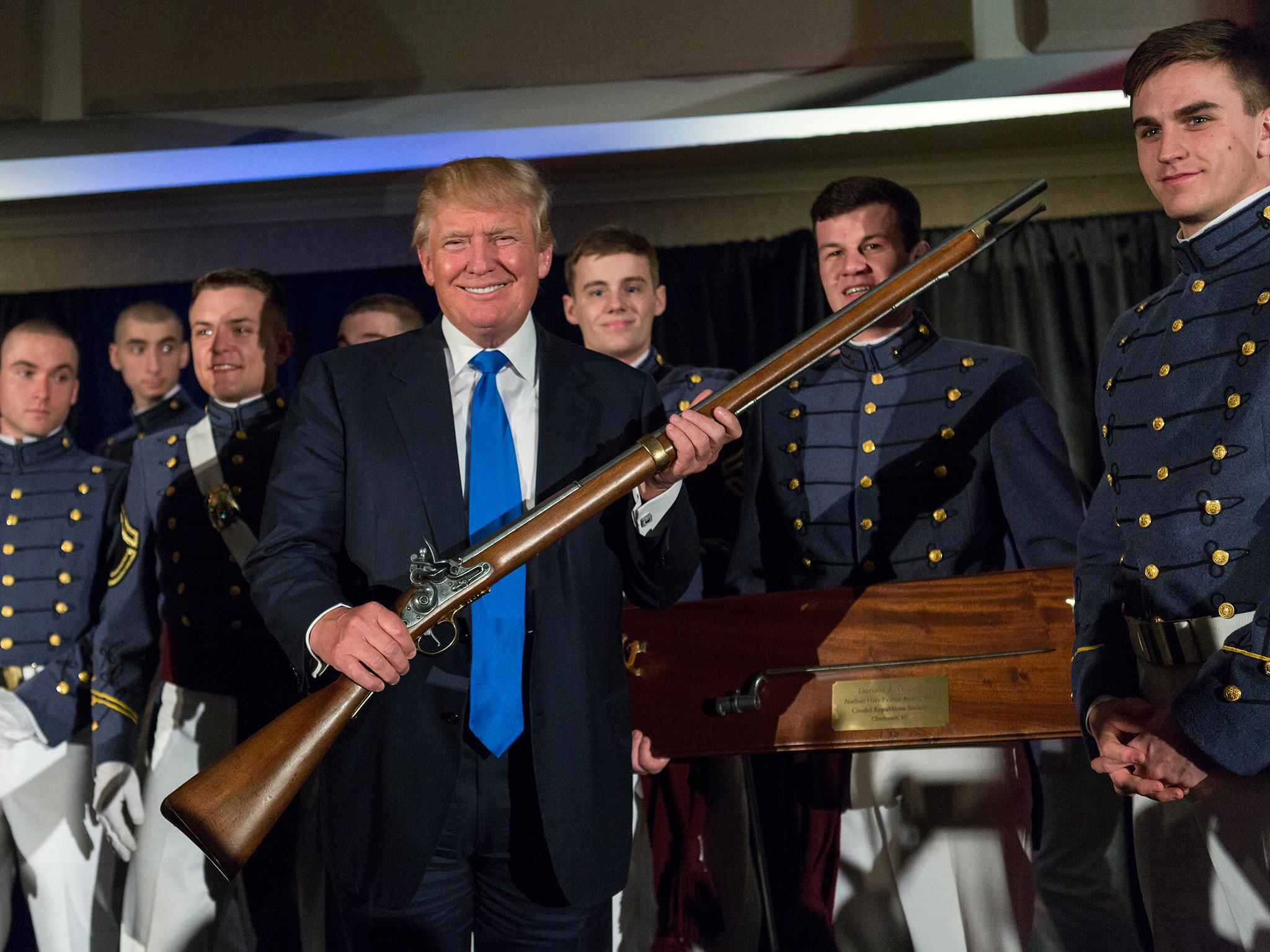We have 'taken back control' from the EU – only to give it to President Trump
Our Conservative cabinet seems to have swallowed the whole Anglo-Saxon world of the hard leavers, in its emotional embrace of the Trump Administration and a nostalgia for the Empire – which many in the Commonwealth do not share

Your support helps us to tell the story
From reproductive rights to climate change to Big Tech, The Independent is on the ground when the story is developing. Whether it's investigating the financials of Elon Musk's pro-Trump PAC or producing our latest documentary, 'The A Word', which shines a light on the American women fighting for reproductive rights, we know how important it is to parse out the facts from the messaging.
At such a critical moment in US history, we need reporters on the ground. Your donation allows us to keep sending journalists to speak to both sides of the story.
The Independent is trusted by Americans across the entire political spectrum. And unlike many other quality news outlets, we choose not to lock Americans out of our reporting and analysis with paywalls. We believe quality journalism should be available to everyone, paid for by those who can afford it.
Your support makes all the difference.The Leave campaign did not tell the British people that “taking back control” could mean following the USA wherever the latest Administration leads us: independence from Europe, but dependence on the USA. Tony Blair committed his government to an uncritical “special” relationship with President George W. Bush, which led the UK to follow America into Iraq to depose Saddam Hussein. Theresa May’s pledge to unite the country will collapse – is she is determined on a similar special relationship with President Trump.
There's a worrying contrast between the way Conservative ministers treat our American and our European partners. Towards Washington they express warm emotions and undying loyalty, and alter long-standing British positions – on Israel-Palestine and West Bank settlements, for example – to fit in with changing positions in Washington. The Prime Minister reminded Sky in her interview on January 8 that Britain has “shared values” with the United States – though she has never referred to our sharing values with France, the Netherlands or Germany. Towards our continental neighbours ministers are purely transactional, and sometimes confrontational. The Foreign Secretary has made no efforts to build good relations with his continental colleagues. The Chancellor has threatened the Germans with aggressive tax competition unless they offer us generous terms on Brexit.
There's an underlying anti-European prejudice beneath the pursuit of Hard Brexit: a denial of Britain's shared history and interests with our neighbours, an insistence that we share American exceptionalism. Daniel Hannan's Inventing Freedom: How the English-Speaking Peoples Made the Modern World has become Conservative orthodoxy. Winston Churchill published a far more elegant version of the myth of Anglo-Saxon exceptionalism in The History of the English-Speaking Peoples, 60 years ago, begun before the Second World War to argue the case for partnership between the British Empire and the United States.
Andrew Roberts, one of the leading members of the Eurosceptic “Historians for Britain” group during the EU referendum campaign, updated the story in a recent book from the peak of Anglo-Saxon empire in 1900, where Churchill had stopped. But he failed to explain the impact of the loss of empire, America’s increasing ethnic diversity, the rising importance of the Pacific and America’s west coast and the declining importance in American politics of New England, the heartland of Atlantic-oriented White Anglo-Saxons.
Our Conservative cabinet seems to have swallowed the whole Anglo-Saxon world of the hard leavers, in its emotional embrace of the Trump Administration and enthusiasm for free trade agreements for English-speaking countries like New Zealand above major trading partners like the Netherlands and Germany. Nostalgia for the Commonwealth in the Conservative Party, as an alternative framework for trade and cooperation to Europe, was reflected in Theresa May’s ambitious trade visit to India. Some ministers, at least, learned during that visit that nostalgia for echoes of the British Empire is not an emotion that Indian policy-makers share.
Churchill’s conceptualisation of Britain’s continuing claim to a global foreign policy, in the post-war years, was that Britain balanced carefully between three circles of influence: the transatlantic, the European, and the Commonwealth. Churchill thought we could partner an integrating continent from the outside. Harold Macmillan realised that the recovery of Germany meant that we had to exercise British influence by full engagement with our partners across the Channel.
In the 40 years since the UK joined the EU, regular meetings with our EU partners have proved the most effective way to promote Britain’s international interests, in international organisations, in relations with Russia and China, and negotiations with Iran. No one in government has yet spelled out what will replace this framework, or how a closer dependence on Washington will better serve British interests.
It's in Britain's long-term interests to maintain close relations both with the USA and with our European neighbours, not to follow the Trump Administration blindly and alienate our partners across the Channel. Theresa May has said several times that “we are leaving the EU but we are not leaving Europe”.
It's beginning to look now as if the government wants to turn its back on the European continent, and hope that Trump will embrace us more closely than anyone else.
William Wallace is a Liberal Democrat Peer
Join our commenting forum
Join thought-provoking conversations, follow other Independent readers and see their replies
Comments